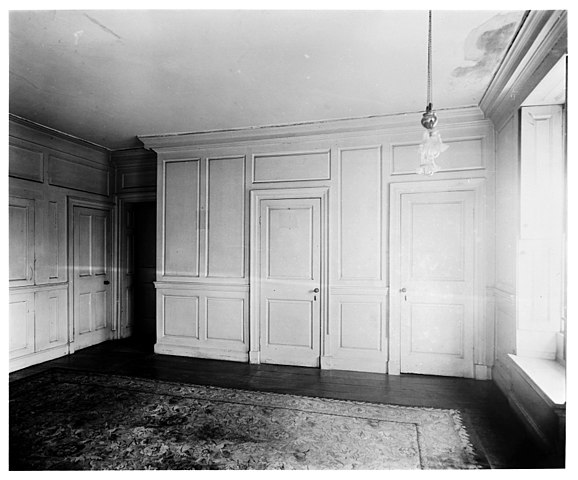A Pair of Thoughts on Empty Rooms
Upton House (Joseph Lister/Wikicommons)
First from the Irish writer James Stephens (1880-1950):
At last the room was as bare as a desert and almost as uninhabitable. A room without furniture is a ghostly place. Sounds made therein are uncanny, even the voice puts off its humanity and rings back with a bleak and hollow note, an empty resonance tinged with the frost of-winter. There is no other sound so deadly, so barren and dispiriting as the echoes of an empty room. The gaunt woman in the bed seemed less gaunt than her residence, and there was nothing more to be sent to the pawnbroker or the secondhand dealer.
–The Charwoman’s Daughter, (London: Macmillan & Co., 1912) “Ch. XVI,” 100.
Next, 102 years later, from Wilfred M. McClay of the University of Oklahoma:
An ordinary but disquieting phenomenon: the translation of place into space—the transformation of a setting that had once been charged with human meaning into one from which the meaning has departed, something empty and inert, a mere space. We all have experienced this, some of us many times. Think of the strange emotion we feel when we are moving out of the place where we have been living, and we finish clearing all our belongings out of the apartment or the house or the dorm room—and we look back at it one last time, to see a space that used to be the center of our world, reduced to nothing but bare walls and bare floors. Even when there are a few remaining signs of our time there—fading walls pockmarked with nail holes, scuffs in the floor, spots on the carpet—they serve only to render the moment more poignant, since we know that these small injuries to the property will soon be painted over and tided up, so that in the fullness of time there will be no trace left of us in that spot.
–“Introduction: Why Place Matters.†Why Place Matters,
Edited by McClay and Ted V. McAllister, (New York, NY: New Atlantis Books, 2014) 4.



0 comments ↓
There are no comments yet...Kick things off by filling out the form below.
Leave a Comment